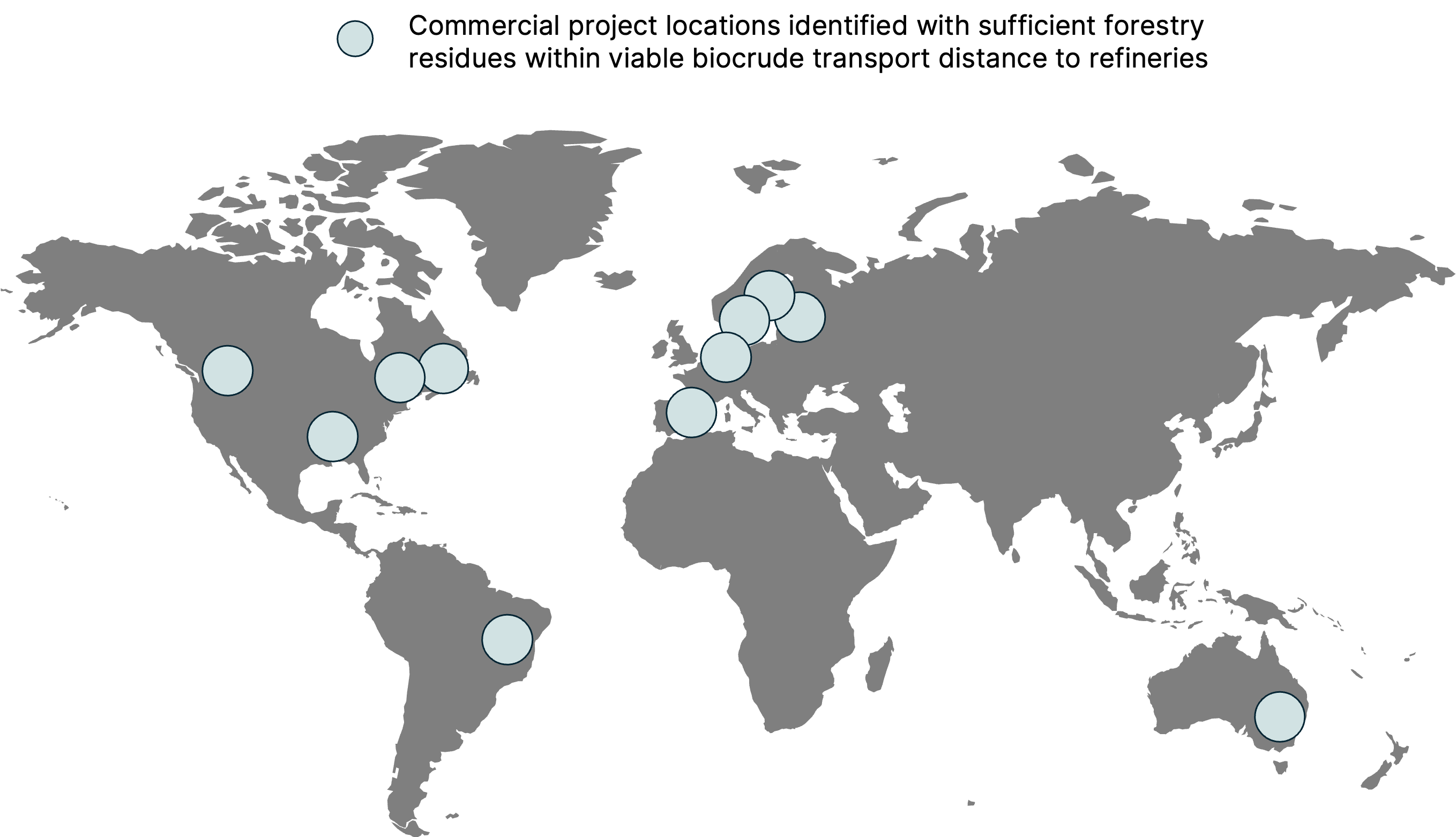If you’re interested in hearing more about our mission to connect sustainable biomass with existing refinery and transportation infrastructure, please get in touch by contacting hello@alderrenewables.com
Lowest-cost, infrastructure-ready biofuel.
No billion-dollar refinery investment needed.
Meets Biofuel Mandates

Cheaper than used cooking oil
Delivers lowest cost of CO2 abatement for advanced biofuels
Infrastructure Compatible

No billion-dollar investment
Uses existing refinery assets to avoid 5+ years of construction
Scalable Feeddstock

56 billion+ gal potential today
Sourced solely from woody residues in North America and EU

Clear roadmap to market with an established track-record of federal grant support, completed commercial design, and 1st commercial facility site identified

Start commercial production and expand globally
Partner with forestry product companies
Develop market with refiner commercial trials
Execute project build out and expand prodution


Our proprietary platform converts abundant and sustainable biomass into low-carbon to carbon-negative Alder biocrude oils. These can then be processed into sustainable aviation fuel (SAF) and other transportation fuels, including marine fuels, as well as renewable chemicals.

We partner with government, industry, and academics to advance the development of our technology. Alder Renewables is backed by Honeywell UOP, United Airlines Ventures, Directional Aviation, and Avfuel. Its technology has been trialed and tested at the Department of Energy’s National Renewable Energy Laboratory (NREL), with support from the U.S. Defense and Logistics Agency.

Our goal is to develop projects close to the source of sustainable biomass, rather than transporting the raw materials long distances from multiple sites back to one central facility. Our localized approach will allow us to bring direct socioeconomic benefits to local communities, reduce transport needs, and to be more capital and carbon efficient.

We advocate at the state, federal, and global level for government policy that can unlock the next generation of renewable fuels and chemicals, with a specific focus on unleashing the biomass supply chains and industry demand signals that will help to fast-track the clean energy transition.